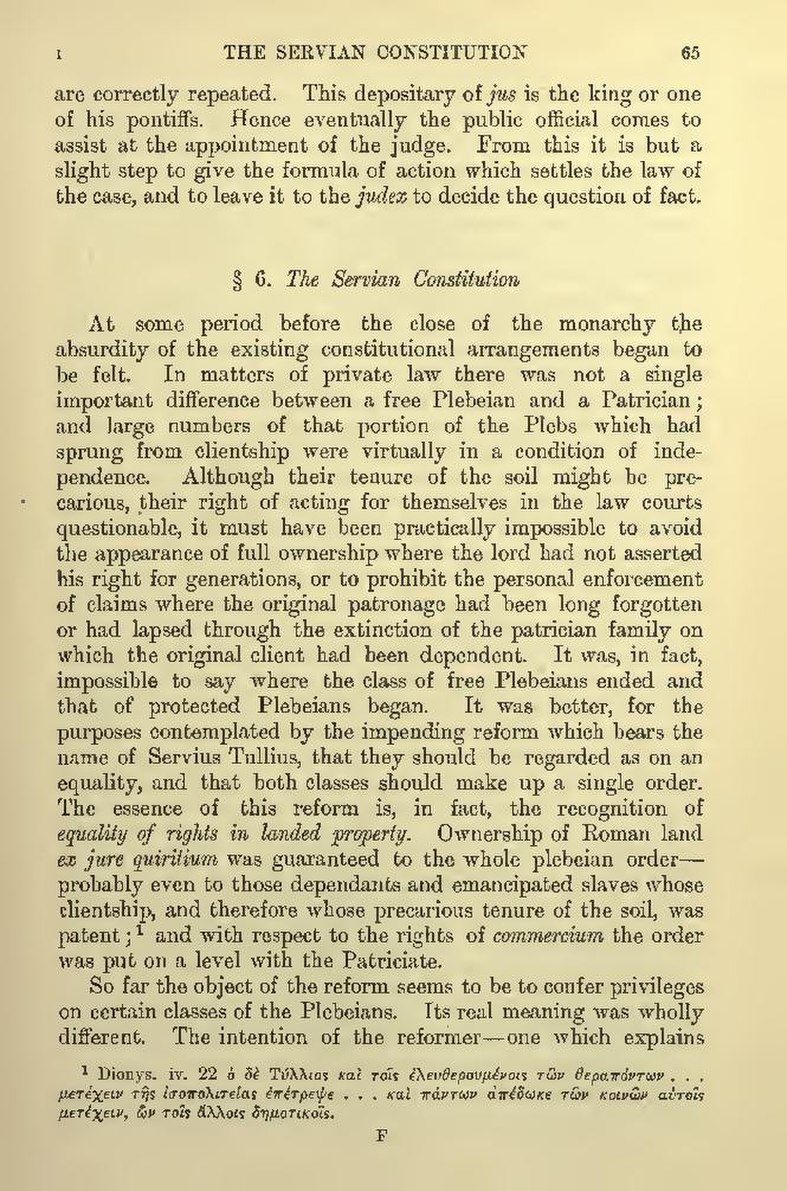are correctly repeated. This depositary of jus is the king or one of his pontiffs. Hence eventually the public official comes to assist at the appointment of the judge. From this it is but a slight step to give the formula of action which settles the law of the case, and to leave it to the judex to decide the question of fact. § 6. The Servian Constitution
At some period before the close of the monarchy the absurdity of the existing constitutional arrangements began to be felt. In matters of private law there was not a single important difference between a free Plebeian and a Patrician; and large numbers of that portion of the Plebs which had sprung from clientship were virtually in a condition of independence. Although their tenure of the soil might be precarious, their right of acting for themselves in the law courts questionable, it must have been practically impossible to avoid the appearance of full ownership where the lord had not asserted his right for generations, or to prohibit the personal enforcement of claims where the original patronage had been long forgotten or had lapsed through the extinction of the patrician family on which the original client had been dependent. It was, in fact, impossible to say where the class of free Plebeians ended and that of protected Plebeians began. It was better, for the purposes contemplated by the impending reform which bears the name of Servius Tullius, that they should be regarded as on an equality, and that both classes should make up a single order. The essence of this reform is, in fact, the recognition of equality of rights in landed property. Ownership of Roman land ex jure quiritium was guaranteed to the whole plebeian order—probably even to those dependants and emancipated slaves whose clientship, and therefore whose precarious tenure of the soil, was patent;[1] and with respect to the rights of commercium the order was put on a level with the Patriciate.
So far the object of the reform seems to be to confer privileges on certain classes of the Plebeians. Its real meaning was wholly different. The intention of the reformer—one which explains.]
- ↑ Dionys. iv. 22 [Greek: ho de Tullios kai tois eleutheroumenois tôn therapontôn . . . metechein tês isopoliteias epetrepse . . . kai pantôn apedôke tôn koinôn autois metechein, hôn tois allois dêmotikois
